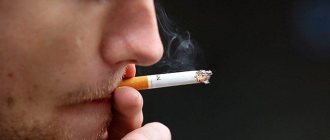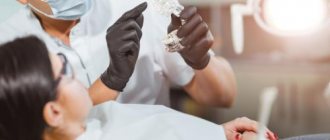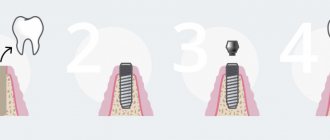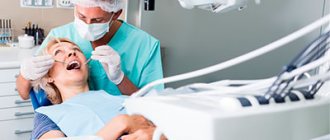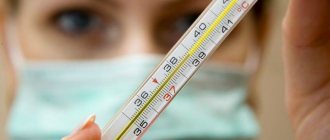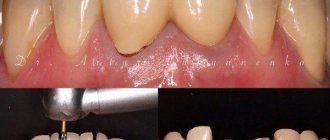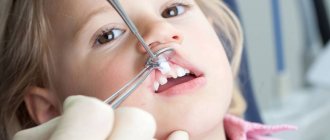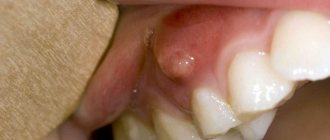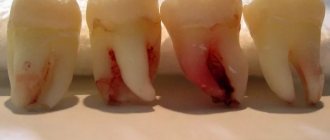08.04.2021 29784
Tooth extraction surgery is a traumatic process for the gums. It is important that the hole heals properly, that no contamination gets inside and that infection does not begin.
Much here depends on the patient himself and how carefully he will follow the doctor’s instructions.
One of the common questions is when can you drink alcohol after tooth extraction. There are many myths and misconceptions surrounding this topic.
Some dental clients think that the use of alcohol-containing drinks even has a positive effect - it disinfects the tooth. But this is a very dangerous misconception.
Let's look at the issue of drinking alcohol in more detail and tell you why you should be careful when you start drinking alcohol.
Is it possible to drink alcohol after tooth extraction?
Content:
- Is it possible to drink alcohol after tooth extraction?
- Why you shouldn't drink alcohol after tooth extraction
- How long should you not drink alcohol after tooth extraction?
- Other dental situations when drinking alcohol is prohibited
Such a small dental operation as tooth extraction at the Center for Modern Dentistry affects a person’s daily life. One of the most common questions asked by a dental surgeon: is it possible to drink alcohol after tooth extraction
Is there a way to drink alcohol in moderation after an IV?
Even when a person fully understands the gravity of his situation, he still often tries to find an excuse and a reason for drinking after infusion therapy. The main arguments sound like this:
- I'm not like that degraded type, I know how to control myself.
- Am I an alcoholic, because I’m not lying under the fence.
- I will be able to drink little by little so as not to go into binge drinking.
- I will only drink alcohol on weekends and holidays.
But these phrases in the mouth of an alcoholic are just words designed to justify his desire to return to drinking strong drinks. And even a small portion of an alcohol-containing product can again plunge a person into the whirlpool of continuous drunkenness. Because no matter how passionately the patient may want to drink moderately and civilly, he is unlikely to succeed.
Therefore, you should refrain from such an ill-considered step as drinking alcohol after an IV. If the craving for alcohol is irresistible, and you feel that you might relapse, then be sure to contact a specialist in a drug treatment clinic. Doctors will suggest the best solution to your problem and help you cope with your psychological and physical cravings for intoxicating drinks.
Is it possible to drink alcohol after tooth extraction?
Alcoholic drinks increase blood pressure and increase blood flow to the socket of an extracted tooth. This provokes heavy bleeding, which leads to the blood clot being washed out of the socket. The bleeding does not stop for a long time: a repeated visit to the clinic is often required. If a blood clot falls out of the socket, food gets there and microorganisms develop. Inflammation, swelling, and severe pain begin, which indicates the onset of a disease such as alveolitis. Repeated intervention by a dental surgeon will be required.
In addition, complex surgical interventions (removal of an unerupted wisdom tooth, sawing of roots) require the prescription of antibiotics. Alcohol should not be taken for the entire period of taking antibiotics: it inactivates the effect of antibacterial drugs. This means that the drugs will not have their antimicrobial effect, and the inflammation in the socket will not go away. In this case, the recovery period will last for several weeks or months.
Do not self-medicate, consult a doctor!
Don't wait for your condition to worsen!
Sign up
After removal, the dentist prescribes painkillers to reduce discomfort. Ethyl alcohol reduces the effect of such drugs. This means that the patient will suffer from pain in the postoperative period.
Thus, due to exposure to ethyl alcohol, complications arise after dental surgery. Therefore, the answer to the question: is it possible to drink alcohol after tooth extraction will be clearly negative.
Literature:
- Nishi Katsuzou. Detoxification and renewal of the body [Text]: diets, vibrations, meditation / Katsuzo Nishi. – St. Petersburg: Vector, 2013. – 155, [1] p. : ill.; 21 cm.
- Damir, Elena Alimovna. Infusion-transfusion therapy in a surgical clinic [Text]: [Textbook. allowance] / E. A. Damir, Yu. N. Shanin, A. L. Kostyuchenko; Ministry of Health of the USSR. Center. Institute for advanced training of doctors. – Moscow: [b. i.], 1972. – 63 p.; 20 cm.
- Zaikovsky, Vitaly Viktorovich. Detoxification in acute ethanol poisoning, complicated by alcohol withdrawal syndrome or delirium delirium: dissertation ... candidate of medical sciences: 03.14.04 / Zaikovsky Vitaly Viktorovich; [Place of defense: Emergency Medical Research Institute]. – Moscow, 2011. – 152 p. : 6 ill.
- Issues of addiction. 2022. 2022, No. 8 (168). – 2022. – 106, [1] p. : table
Why you shouldn't drink alcohol after tooth extraction
It is possible to extract a tooth in Moscow without complications if the patient follows all the prescribed recommendations. The ban on taking alcohol-containing products after removal is explained by the mechanisms of action of ethyl alcohol on the body. One of its actions is to dilate blood vessels.
Drinking alcohol-containing drinks after removal causes complications:
- Severe bleeding from the socket, which often cannot be stopped without medical intervention.
- Soft tissue swelling that disrupts facial symmetry.
- Ineffectiveness of medications prescribed by a doctor (for example, antibiotics, painkillers).
- Under the influence of ethyl alcohol, the load on the heart increases: the pulse quickens, and the strength and speed of contraction of the heart muscle decreases. Considering that many patients are afraid of dental interventions, the heart is put under double stress.
From all of the above, it becomes clear why alcohol should not be consumed after tooth extraction.
Psychological factor
We should also talk about the moral state and psychological state of the patient. People who are very afraid of the dentist are called dentophobes. This category of people comes to the doctor only in advanced cases, when the pain can no longer be endured or it is a purulent process. As soon as the patient crosses the threshold of dentistry, the heart begins to beat faster, the body actively produces adrenaline, as a result of which spasm of the smallest blood vessels occurs. It is for this reason that the anesthetic is ineffective.
To eliminate this factor, dentists recommend starting to take sedatives at night 2-3 days before. A conversation with a doctor, a detailed description of the process, a cozy atmosphere and pleasant music are conducive factors that will help you relax as much as possible.
Other dental situations when drinking alcohol is prohibited
- Alcohol is prohibited after dental implantation, otherwise there is a risk of bleeding. Dental implantation is a major surgical procedure that often requires the administration of various medications that are incompatible with alcohol. When can you drink alcohol after dental implantation: until the sutures are removed from the gums, you should completely limit the intake of alcoholic beverages. In addition, the implantologist can give individual recommendations based on the characteristics of the clinical situation.
- You should not drink alcohol in the first hours after dental treatment. It is recommended to wait until the anesthesia wears off. Then you should check whether the filling is in the way, whether there are any painful sensations that the doctor did not warn about. Drinking alcoholic beverages “erases” some sensations in the oral cavity.
- Alcohol and dental anesthesia affect each other only if the patient took strong drinks the day before the dentist visit. In this case, anesthesia does not work well, or “freezing” will not occur at all. Alcohol after dental anesthesia is not prohibited. It is important to note that for many patients, visiting the dentist's office is stressful. This directly affects the heart muscle. Ethyl alcohol puts a lot of stress on the heart, so it is not recommended to overload the body with alcohol after medical interventions.
To avoid complications after dental procedures, it is recommended to stop drinking alcohol-containing liquids for a while. You should also strictly follow all the dentist’s instructions.
What are the objectives of infusion-drip therapy?
For drug cleansing of the body from toxic breakdown products of ethyl alcohol, a complex of pharmacological drugs is selected individually for each patient. In this case, the doctor takes into account gender and age, experience and intensity of alcohol consumption, indicators of the patient’s physical and mental state. The medications included in detoxification drips are designed to:
- neutralize toxins, minimize their harmful effects;
- accelerate the removal of toxic compounds from physiological fluids, all organs and tissues;
- restore water-salt balance;
- replenish the lack of vitamins and minerals;
- normalize the psycho-emotional state;
- get rid of structural and functional pathologies of internal organs and systems caused by the abuse of intoxicating drinks.
For this purpose, a number of pharmacological agents with certain properties are used: antidotes, sorbents, sedatives, nootropics, antidepressants, saline solutions, vitamin and mineral complexes. To overcome chronic and concomitant ailments, other medicinal compounds may be prescribed individually based on the severity and symptoms of the disease.
The effect of alcohol on the body
Every alcoholic beverage is an unnatural product containing ethanol (C₂H₅OH) in varying amounts and forms. This definition is enough to understand that alcohol is a chemical substance that is harmful to the body because:
- gradually destroys brain cells;
- is a mutagen (can change the genetic programs of cells);
- corrodes the gastric mucosa (literally causes burns);
- interferes with the absorption of nutrients and the production of digestive enzymes;
- It destroys red blood cells, which slows blood flow to all organs.
The list goes on. There is not a single organ system that is not affected by alcohol. Young healthy people who drink rarely, the immune system tries to fight all the changes, and the liver tries to cleanse the body of toxins. But if a person is weakened by illness, age, or recent surgery under anesthesia, the consequences of drinking alcohol can be dire. All processes caused by the consumption of alcoholic beverages are many times more active.
What about the benefits of a glass of red wine or 50 grams of cognac? After all, even some doctors talk about this. In fact, small amounts of high-quality alcohol have a beneficial effect on the vascular system, dilating blood vessels and allowing blood to flow more freely. Plus the benefits of antioxidants and iron, which are also found in some types of alcoholic beverages. But the notorious glass of wine or an injection of cognac is allowed only to absolutely healthy people who do not have problems with the stomach, brain or other organs.
Expert advice
So, now let’s look at the unique recommendations of doctors that will help prevent inaction of anesthesia:
- Alcohol should not be taken three days before visiting the doctor. If a trip to a medical facility was not planned, and you drank alcohol the day before, the situation can be resolved with the help of enterosorbents. Even regular activated carbon will do. You need to drink the appropriate dosage for your weight twice with an interval of 1-2 hours.
- If you do not want to take sedatives. Replace them with a soothing tea, mint tea, a warm bath with lavender, etc.
- To normalize your psychological mood, try to think about positive aspects. Good emotions will help you overcome your fear of the dentist and successfully undergo the necessary dental procedures without pain and discomfort.
Preparing for surgery
Initially, a complete examination of the patient’s oral cavity is performed. The three-dimensional modeling technique is most often used, as it allows:
- take into account the characteristic features of the anatomical structure of the jaw when selecting the type and size of inserts;
- carry out the most detailed diagnosis, which will help avoid complications in the future;
- get results very quickly (literally 5 minutes).
Based on the data obtained, the dentist chooses a treatment method. Practice shows that such procedures usually have good results. But, unfortunately, these operations are not allowed for everyone. Categorical contraindications:
- immune deficiency;
- oncology;
- poor blood clotting;
- inflammatory processes in the maxillary sinus;
- disturbances in the functioning of the cardiovascular system;
- acute stage of ENT diseases.
Postoperative complications caused by drinking alcoholic beverages
If medical instructions were violated - after a recent operation, alcoholic beverages were taken, you should immediately contact a doctor if the following occurs:
- Weakness, excessive sweating, dizziness;
- Fever and chills;
- Chest pain (tightness), shortness of breath and cough;
- Reducing blood pressure;
- Nausea and/or vomiting.
Since ethyl alcohol increases the thickness of the blood, clots form in it, which clog small capillaries and blood vessels. Therefore, hops after surgery can become the culprit of hemorrhage, heart attack, and stroke.
If you drink alcohol during surgery, you may experience shortness of breath and tight pain in the chest area.
In individuals who have abused the drug before surgery, recovery from general anesthesia is more difficult. Often accompanied by symptoms of hangover, delirium tremens, and impaired consciousness. In the future, such symptoms can negatively affect the health of the individual, causing “breakdowns” in the body and a protracted rehabilitation period.
Now you know whether you can drink alcohol after anesthesia and what the insidious consequences are. Remember that the high from short-term intoxication is completely unjustified if there is a struggle for health and a full life. After all, your health is priceless. Be reasonable!
When can you drink?
Most patients who learn that alcohol is contraindicated after general anesthesia immediately ask an additional question: when can you drink alcohol? I mean, after how many days will she be allowed to drink?
Drinking alcohol causes stress on the body. After surgery under anesthesia, the immune system is weakened, and all additional stress (physical, physiological and mental) is very dangerous. Therefore, the patient is prescribed certain medications, diet, restriction of physical activity and rest. Plus - strict abstinence from alcohol.
Important! 30 days is the minimum during which you need to abstain from even light alcoholic beverages after surgery under anesthesia. This is the optimal period during which the body will have time to recover after an ordinary simple operation.
Particularly serious intervention requires longer abstinence from alcohol (in consultation with a doctor). And then, for example, you should not drink alcohol at all during pancreatic surgery.
